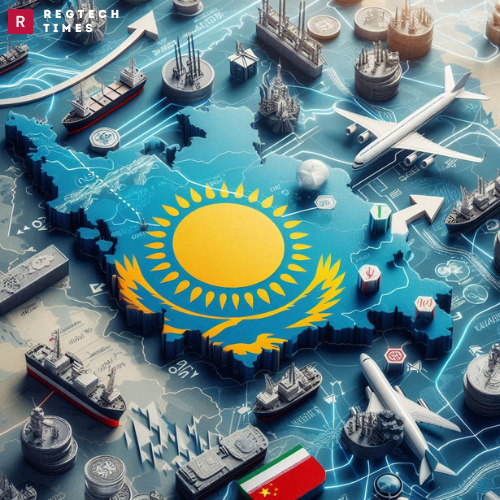In a notable shift in its international policy, Kazakhstan has redefined its approach to the sanctions imposed on Russia. Historically, Kazakhstan has maintained strong economic and political ties with its larger neighbor, but recent developments reveal a strategic pivot aimed at safeguarding its own economic interests while navigating the complex landscape of global sanctions.
The country’s Deputy Prime Minister and Minister of Trade and Integration, Serik Zhumangarin, has recently declared that the country will not “blindly follow” international sanctions if they adversely impact its domestic industries. This significant change in stance reflects Kazakhstan’s broader strategy to prioritize its economic stability amidst the evolving geopolitical landscape.
Economic Priorities in Focus
Kazakhstan’s updated approach highlights its commitment to protecting its domestic economy and employment. Zhumangarin’s comments highlight the nation’s resolve to avoid sanctions that could disrupt trade for local producers, which are vital to the country’s economy. The Central Asian nation is keen on preserving the economic health of its industries, especially those that are major employers in various regions.
Kazakhstan’s economic strategy involves deepening trade relations with diverse global partners, including major players like Iran and China. By expanding its network of trade partners, the country aims to mitigate the risks associated with heavy reliance on any single country or economic bloc. This diversification is viewed as a strategic effort to strengthen the country’s economic stability and maintain its growth trajectory.
Challenges of Sanctions on Regional Trade
The sanctions imposed on Russia, particularly due to the Kremlin’s actions in Ukraine, have created ripple effects throughout the region. Kazakhstan, with its significant economic ties to Russia, has faced challenges due to the sanctions. The economic disruptions have posed risks not only to the country’s trade with Russia but also to its overall economic stability.
One notable aspect of this challenge is Kazakhstan’s decision to maintain its export of ball bearings, a component critical to Russia’s defense industry. While Western sanctions target these components due to their dual-use nature—applicable both in military and civilian contexts—the country’s local production of ball bearings is tailored to specifications prevalent in Eastern Europe and former Soviet states. This decision reflects a strategic choice to safeguard its domestic production capabilities and economic interests.
US Treasury Secretary Urges German Banks to Strengthen Compliance with Russia Sanctions
Kazakhstan’s stance is a reflection of its nuanced approach to international diplomacy. While the country has historically aligned itself with Russia, it is now balancing its economic needs with the geopolitical pressures from the West. The West is particularly concerned about the potential facilitation of restricted goods to Russia, which could undermine the effectiveness of sanctions aimed at curbing Russia’s military activities.
By continuing to produce and trade certain goods despite international restrictions, Kazakhstan is asserting its sovereignty in managing its economic affairs. This approach highlights the tension between national economic priorities and global diplomatic pressures. The leaders are carefully navigating this balance to ensure that their economic policies do not alienate important international partners while also addressing domestic needs.
Strengthening EU-Kazakhstan Relations: A Focus on Sanctions Compliance and Economic Cooperation
Implications for Kazakhstan’s Global Position
The recalibration of Kazakhstan’s stance on sanctions is indicative of the broader trends in international relations where countries are reassessing their strategies in response to shifting global dynamics. The country’s efforts to expand its trade network and economic partnerships reflect a strategic approach to maintaining its economic stability in a volatile geopolitical environment.
As Kazakhstan continues to navigate these complex issues, its decisions will have significant implications for its relationships with both Western nations and regional partners. The country’s approach to sanctions and trade will be closely watched by global stakeholders, who are keen to understand how Kazakhstan’s policies might influence broader regional dynamics.
Kazakhstan’s strategic shift in its approach to sanctions reflects the broader challenges faced by nations in a rapidly changing geopolitical landscape. By prioritizing its economic interests, it is charting a course that seeks to harmonize its domestic needs with the realities of international diplomacy. This recalibration highlights the complex interplay between national sovereignty and global economic pressures, offering a compelling case study in modern international relations.


